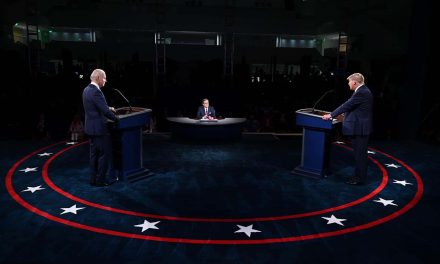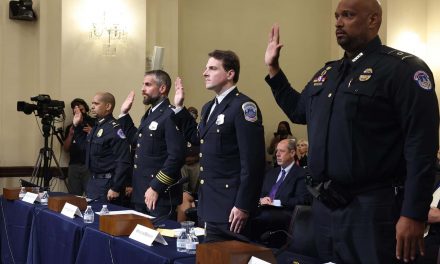
Former president Trump took to his Truth Social media platform on December 14 to announce that he would be making “a MAJOR ANNOUNCEMENT.” Since he recently threw his hat in the ring for president in 2024, there was a great deal of speculation about what political move this would be.
When the news came on December 15, it turned out that his announcement was for digital trading cards with images of him as a superhero…available for $99 apiece. Radio personality John Melendez promptly called them “Broke’mon cards.”
Ron Filipkowski, a former federal prosecutor and Republican who now monitors right-wing extremism, tweeted:
“All I can say is that those of us who have lost friends, fought with relatives, resigned positions, been called traitor, left our party, all because we saw very clearly what a con-man, huckster and fraud this man is, have never felt more vindicated.”
The reduction of the former president to a cartoon grifter seems likely to have political repercussions. Right-wing media personality Baked Alaska, who is facing six months in jail after pleading guilty to parading, demonstrating or picketing inside a Capitol building for his participation in the January 6 attack on the U.S. Capitol, tweeted: “i can’t believe i’m going to jail for an nft salesman,” with a sad face emoji.
On December 19, the House Select Committee to Investigate the January 6th Attack on the U.S. Capitol will hold its final public meeting. Kyle Cheney and Nicholas Wu of Politico reported that the committee will vote on referring former president Trump to the Justice Department for at least three criminal charges. Those charges include insurrection, obstruction of an official proceeding, and conspiracy to defraud the U.S. government.
Such a referral creates no legal obligation on the Department of Justice to act, but it certainly creates political pressure. If a bipartisan congressional committee—and the January 6th committee has two Republicans on it, no matter how often Trump supporters say it is all Democrats—many of whose members are lawyers, tells the Justice Department it thinks crimes have been committed, the Department of Justice will need, at least, to explain why it disagrees.
In the shorter term, though, Representative David Cicilline (D-RI) and 40 colleagues introduced a bill on December 15 in which the term “insurrection” matters a lot. The measure bars Trump from holding office under the restrictions imposed by the Fourteenth Amendment. Written in 1866, after President Andrew Johnson had pardoned most of the Confederate ringleaders and constituents had voted them back into office, Congress wrote:
“No person shall be a Senator or Representative in Congress, or elector of President and Vice President, or hold any office, civil or military, under the United States, or under any state, who, having previously taken an oath, as a member of Congress, or as an officer of the United States, or as a member of any state legislature, or as an executive or judicial officer of any State, to support the Constitution of the United States, shall have engaged in insurrection or rebellion against the same, or given aid or comfort to the enemies thereof.”
The states ratified that amendment in 1868.
Also, at the request of the Department of Justice, U.S. District Court Chief Judge Beryl Howell unsealed an opinion she wrote in June, in which she determined that a number of communications between Representative Scott Perry (R-PA), lawyer John Eastman, and Justice Department lawyer Jeffrey Clark, who tried to take over the attorney general’s job and use the Justice Department to overthrow the 2020 presidential election, and his aide Ken Klukowski were not privileged.
It is not clear why the Department of Justice wanted this decision unsealed.
But the material does show that department lawyers have had access to Clark’s inside account of a couple of key moments: Trump looking at the letter Clark drafted incorrectly telling Georgia legislators the department thought the results of the election were tainted—there is evidence Trump knew this was false—and the key January 3, 2021, meeting in which Trump was stopped from putting Clark in power only when the rest of the Justice Department’s leadership threatened to resign.
Clark’s information came in the shape of an outline for an autobiography. That he set out to write such a document suggests that those involved in trying to overthrow our government saw themselves as heroes in the making: the reason we have so many diaries from Confederates in the early 1860s is that they imagined they were the Founders of their own new nation.
The autobiography also appears to reveal a direct connection between the attempt to overthrow the United States government and the toxic individualism of the Movement Conservatives who took over the Republican Party in the 1990s.
Movement Conservatives based their ideology in the idea from the Reconstruction years that Black voters would elect leaders who promised them roads and schools and hospitals that could only be paid for with taxes on property owners. In the post–Civil War South, that primarily meant white men. Thus, in this construction, minority voting meant a redistribution of wealth from white men to Black people.
In the twentieth century, international communism meant government takeover of the means of production. But in the United States, “socialism” and “communism” were defined in the 1870s by those opposed to Black voting, who insisted that letting Black men have a say in their government would create a racial redistribution of wealth that would destroy America.
This idea melded with the nation’s opposition to international communism after World War II, in which support for communism truly seemed to threaten the nation’s existence, to lead us to where we are today. As minority voting grew after 1965 and women began to vote independently of their husbands after 1980, the American fear of communism expanded to justify the belief that elections won by candidates popular with women and minorities are illegitimate.
According to the judge’s decision, this idea was important to Clark. In the conclusion to his autobiography, Clark promised that he would continue to work on “Covid litigation and against wokeism” and that he would “resist communism.”
Finally, the House Ways and Means Committee, which got access to six years of Trump’s tax returns at the end of November after years of litigation, will hold a meeting on December 20 to vote on whether to make them public. Republicans will control the committee in the new Congress, and if the Democrats now in charge don’t vote for their release, it might well not happen.
That being said, at this point my guess is that there are a number of Republicans standing back and silently cheering on those trying to put a definitive end to Trump’s political career.
Lее Mаtz / collecttrumpcards.com
Letters from an Аmerican is a daily email newsletter written by Heather Cox Richardson, about the history behind today’s politics
















